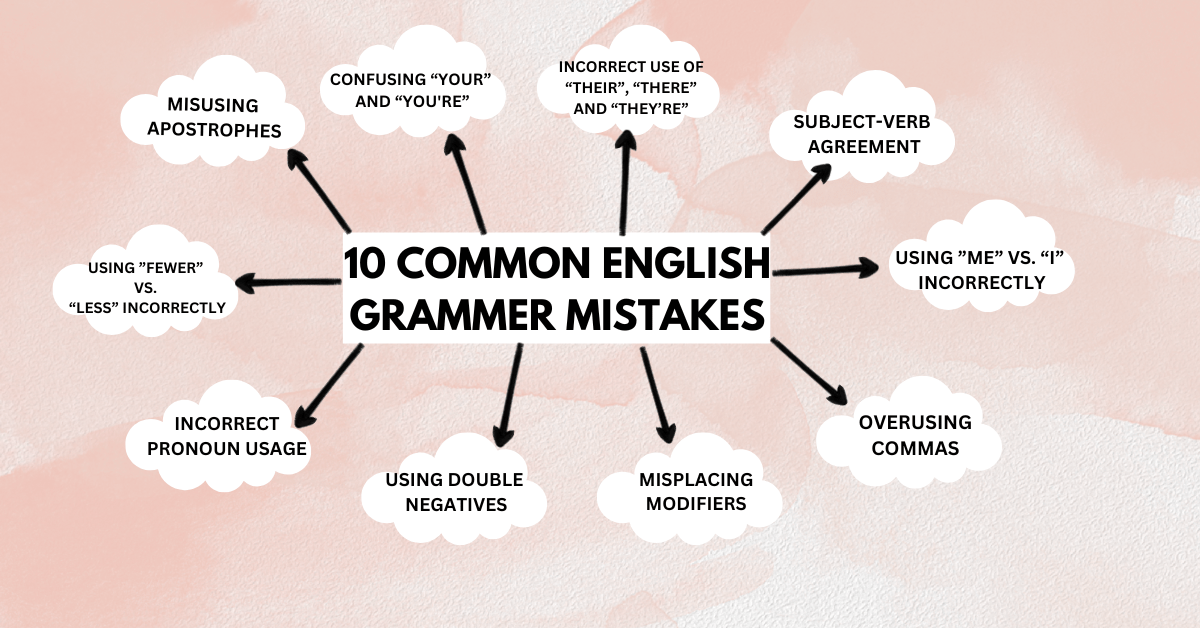Do you ever find yourself hesitating because you’re unsure if your English sounds correct? Making grammar mistakes while speaking can shake your confidence and stop you from expressing yourself clearly.
But what if you could speak English smoothly without worrying about errors? This article will show you simple, effective ways to avoid common grammar mistakes when you speak. By the end, you’ll feel more confident and ready to communicate with ease.
Keep reading—your path to better English starts here.
Common Grammar Errors
Common grammar errors can make speaking English confusing. They often block clear communication. Knowing these mistakes helps you speak more confidently and correctly.
Many learners struggle with a few key areas. These errors happen often but are easy to fix with practice. Focus on the basics to improve your speaking skills fast.
Subject-verb Agreement
Subject-verb agreement means the subject and verb must match. Singular subjects need singular verbs. Plural subjects need plural verbs. For example, say “She runs” not “She run.” This small rule keeps sentences clear and correct.
Tense Confusion
Tense shows when something happens. Mixing tenses confuses listeners. Use past tense for finished actions. Present tense for things happening now. Future tense for things coming up. Stick to one tense in a sentence or short story.
Incorrect Prepositions
Prepositions link nouns to other words. They show location, time, or direction. Common errors include using “in” instead of “on” or “at” instead of “to.” Choose the right preposition to avoid confusion. Practice common pairs like “at home” or “on time.”
Misuse Of Articles
Articles are small words: “a,” “an,” and “the.” Use “a” before words starting with a consonant sound. Use “an” before vowel sounds. Use “the” for something specific. Leaving out articles or using the wrong one changes meaning.

Credit: www.getlitt.co
Techniques To Improve Grammar
Improving grammar while speaking English takes time and smart practice. Using the right techniques helps you speak clearly and confidently. These methods make grammar easier to remember and use correctly.
Practice Speaking Regularly
Speak English every day. Practice with friends or language partners. The more you speak, the better your grammar will become. Try simple sentences first. Focus on correct word order and tenses. Mistakes will decrease with constant practice.
Listen To Native Speakers
Listen to native English speakers often. Pay attention to how they form sentences. Notice their use of verbs and prepositions. This helps you learn natural grammar patterns. Use podcasts, movies, and conversations as examples.
Use Grammar Apps
Use apps designed to improve grammar skills. They give instant feedback and correct errors. Many apps offer daily exercises and quizzes. This makes learning fun and interactive. Consistent use helps build strong grammar habits.
Read Aloud Daily
Read English texts out loud every day. This practice improves your grammar and pronunciation. Hearing yourself helps spot mistakes easily. Choose simple stories or articles to start. Reading aloud builds confidence and fluency.
Building Vocabulary For Accuracy
Building vocabulary is key to speaking English clearly and correctly. A good vocabulary helps you choose the right words. This lowers grammar mistakes. It also makes your speech more confident and easy to understand.
Adding new words to your daily use helps you express ideas better. It makes your sentences more accurate. This section shares tips to build vocabulary for better speaking skills.
Learn Contextual Words
Focus on learning words that fit real situations. Words make sense when you know where to use them. For example, words for shopping, cooking, or traveling. Practice these words in sentences often. It helps you remember and use them correctly.
Avoid Overusing Fillers
Fillers like “um,” “like,” and “you know” do not add meaning. Using too many fillers makes speech unclear. Work on replacing fillers with pauses or thinking time. This habit improves your speaking flow and reduces errors.
Use Synonyms Effectively
Synonyms are words with similar meanings. They help avoid repeating the same word. Use simple synonyms to explain your ideas better. This shows variety and helps keep grammar in check. Choose words that fit the sentence and meaning well.

Credit: engvarta.com
Self-monitoring Strategies
Self-monitoring strategies help you catch grammar mistakes while speaking English. These strategies make you more aware of your language use. They help improve your speaking skills over time. Practicing self-monitoring builds confidence and reduces errors.
Record And Review Speech
Record yourself speaking English. Listen to the recording carefully. Notice any grammar mistakes you make. Repeat this process to track your progress. This method helps you hear your errors clearly. It also shows areas where you need improvement.
Seek Feedback
Ask friends or teachers to listen to your speech. Request honest feedback about your grammar. Others may spot mistakes you miss. Use their advice to improve your speaking. Regular feedback guides you toward better grammar use.
Slow Down Your Speaking Pace
Speak slowly and clearly to avoid mistakes. Slowing down gives your brain time to choose correct words. It reduces pressure and helps you think about grammar. This simple tip improves accuracy and boosts confidence.
Role Of Confidence In Speaking
Confidence plays a big role in speaking English well. It helps you speak clearly and avoid grammar mistakes. When you feel sure of yourself, your words come out easier. You focus more on what to say than on being perfect. This makes your speaking more natural and smooth.
Confidence grows with practice and experience. Speaking without fear allows you to learn from errors. Over time, mistakes seem less scary. You start to enjoy speaking English more. This positive feeling reduces stress and improves your grammar use.
Overcome Fear Of Mistakes
Fear of making mistakes stops many from speaking freely. Accept that errors are part of learning. Each mistake teaches you something new. Try to speak even if you feel unsure. Mistakes will become fewer with practice. Focus on communicating, not on being perfect.
Practice With Peers
Speaking with friends or classmates builds confidence fast. Peers create a safe space for trying new words. They understand your level and help gently. Practice daily in small groups or pairs. Listening and speaking together sharpens your grammar skills. Regular practice reduces hesitation and boosts fluency.
Join Speaking Clubs
Speaking clubs offer a friendly place to practice English. Members support each other and share tips. Clubs often have fun activities and games. This keeps learning light and enjoyable. Talking in a group helps you think quickly. It also improves your grammar without pressure.

Credit: www.awalenglish.com
Frequently Asked Questions
How Can I Reduce Grammar Mistakes While Speaking English?
Practice regularly with native speakers or language apps. Focus on common grammar rules and listen actively to improve accuracy. Recording yourself can help identify errors and track progress.
What Are Common Grammar Errors In English Speaking?
Common errors include wrong verb tenses, subject-verb disagreement, and incorrect article usage. Avoid these by reviewing grammar basics and practicing sentence construction daily.
Which Tools Help Improve English Grammar Speaking Skills?
Use grammar check apps, language learning platforms, and speaking practice tools. These provide instant feedback and help reinforce correct grammar usage during conversations.
How Important Is Listening For Grammar Accuracy?
Listening enhances understanding of correct grammar patterns and pronunciation. It helps internalize sentence structures, making speaking more fluent and grammatically correct.
Conclusion
Speaking English without grammar mistakes takes practice and patience. Speak slowly and think about your words. Listen to native speakers and copy their style. Read simple books or articles every day. Use short sentences to avoid confusion. Don’t worry about making errors; learning is a step-by-step process.
Keep trying, and your confidence will grow. Small daily efforts bring big improvements. Your English will sound clearer and more natural. Keep speaking, learning, and enjoying the journey.
